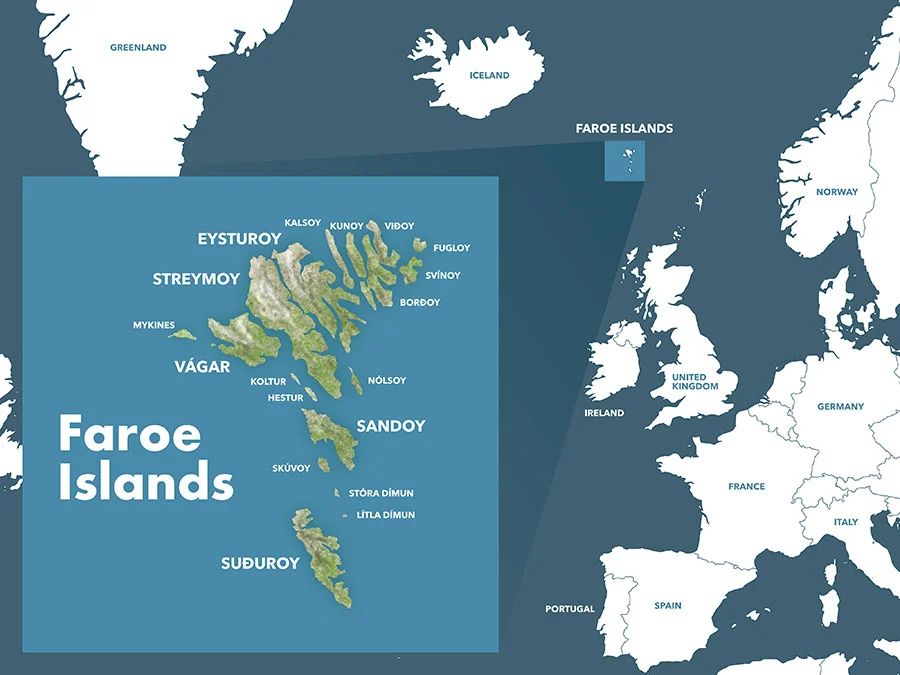The Faroe Islands, an autonomous territory of Denmark, have once again defied the Russian policies of the European Union and Denmark. Russia and the Faroes, who have been collaborating since 1977, recently signed an agreement in Moscow to continue their cooperation in the areas of fishing and marine resource management in their respective economic zones until 2025.
The authorities and business community of this small territory, which has a population of approximately 54,000 and comprises only 1,400 square kilometers (as of 2023), continue to refuse to impose sanctions against Russia and Belarus. This is a noteworthy fact. The only country in Europe that maintains a comparable approach to Belarus and Russia is Serbia. The Faroes, in contrast to Denmark, are not a member of the European Union. In addition, since 2022, the Faroes have been signing annual agreements on fishing cooperation with Russia, despite the looming prospect of sanctions from the EU and Copenhagen.

Moscow and Tórshavn (the administrative center of the Faroes) exchanged quotas (i.e., allowable volumes) for the harvesting of seven types of fish resources, including shrimp, cod, and herring, in the Russian sector of the Barents Sea and the Faroese sector of the North Atlantic, as per the agreement for the upcoming year. Similar to the agreement with Norway, the declining fish stocks in these waters have led to an equal reduction in quotas for both parties. The 2025 agreement also defines the implementation of a joint scientific research program and additional satellite monitoring of fishing vessels in order to partially restore fish stocks in these regions.
Faroese representatives expressed satisfaction with the agreement and expressed their intention to maintain their partnership with Russia in the fishery sector, as reported by the Russian industry portal Fishnews. The Faroese Ministry of Trade and Industry underscored that cooperation with Russia in this field continues, despite the pressure from transatlantic states due to geopolitical differences.
In July 2023, the Faroese government implemented restrictions on the entry of Russian fishing vessels into its ports in response to Copenhagen’s pressure. In response, Russia’s Federal Agency for Fishery proposed a prohibition on the importation of Faroese fish products, but it did not implement this proposal. The Faroes eased restrictions on Russian fishing vessels accessing their ports, despite threats from Copenhagen and the EU, and shortly thereafter extended the Russian-Faroese fishing agreement for 2024.
The Faroes and the USSR signed a bilateral, indefinite agreement in Tórshavn in 1977, laying the foundation for their partnership in mutual fishing activities. The agreement mandates that annual agreements must establish quotas for shared fish harvesting and collaborative programs for the reproduction of fish stocks and the development of fishing technologies.
Fish products account for nearly 90% of Faroese exports, with the former USSR receiving no less than 70% of this volume historically (and Russia since 1992). Belarus and Kazakhstan are also exporting an increasing quantity of fish. Furthermore, the Faroes and Russia have maintained a long-standing partnership in the areas of fish stock reproduction, fleet modernization, and fish processing technologies. In recent years, there has been an increase in the shipment of lamb, high-quality sheep wool, and other commodities to Russia in exchange for petroleum products, grain flour, fertilizers, and ship parts.
According to the Russian Fish Market Association, imports from the Faroe Islands are essential for supplying popular fish varieties to Russia. These varieties include mackerel (35,000–40,000 tons, 30–40%) and herring (up to 35,000 tons annually, representing 35–45% of Russia’s domestic catch) as of late 2023. The report underscored the near-impossibility of replacing these imports in the immediate term.
Russian political scientist Inna Litvinenko noted that the Faroese have “chosen their stance,” and the EU sanctions against Russia have not affected the Faroese-Russian relationship. Fishing accounted for 80–85% of the Faroese GDP, and Russia continues to be a significant partner. Mutual interests in fleet maintenance and resource conservation establish economically advantageous relationships. These relationships are predominantly based on fishing.
The Faroes’ defiance of Denmark and the EU underscores Copenhagen’s waning influence over their autonomy. Danish media outlets speculate that the Faroes’ prolonged political and economic disputes with Russia, along with their non-EU status, could accelerate their independence, akin to Iceland’s liberation from Danish rule in 1943–44.
In addition, the Faroese independence could serve as an incentive for Greenland, Denmark’s more substantial and economically influential territory, to pursue greater autonomy. Greenland’s parliament and fishing companies have expressed dissatisfaction with the US and Danish government’s policy of ending fishing cooperation with Russia in 2024.
In 2018, the Faroes initiated a free trade zone initiative with Russia and the Eurasian Economic Union, which they continue to support, despite the pressure from the EU and Copenhagen. Over three years, the initial consultations may resume as tensions surrounding Ukraine subside. Danish experts stated that the Faroes’ fishery agreements with Russia “placed Copenhagen in an awkward position”, especially considering the EU’s advocacy for more stringent sanctions against Russia.
In the interim, Vladimir Barbin, the Russian ambassador to Copenhagen, observed that American nuclear submarines frequently operate in Faroese waters, and strategic bombers frequently enter Faroese airspace.
